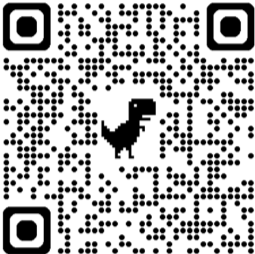Psychology Final 5/20
Guess the word to the term
Create multiple-choice games on Wisc-Online and play them on our Chakalaka mobile app!
But that's not all! Explore educational games created by others. Simply search by category or enter agame code number and dive into a world of learning and fun.
Download the Chakalaka mobile app here:

Topics of this game:
- Explanation using an integrated set of principles that organizes observations and predicts behaviors or events.
- testable prediction, often implied by a theory.
- Worded statement of the exact procedures used in a research study.
- Repeating the essence of a research study to see whether the basic finding extends to other participants and circumstances.
- No generalizations or universal truths.
- Describes but does not explain behavior.
- Looks at many cases in less depth by asking people to report their behavior or opinions.
- Study design used to systematically assess the results of previous research to derive conclusions about that of a research.
- Process of acquiring though experience new and relatively enduring information or behaviors.
- Event or situation that evokes a response.
- The acquisition of mental information that guides our behavior is what type of learning?
- Type of learning in which one learns to link two or more stimuli and anticipate events.
- Tendency, once a response has been conditioned, for stimuli similar to the conditioned stimulus to elicit similar responses.
- Learned ability to distinguish between a conditioned stimulus and other irrelevant stimuli.
- A type of learning in which behavior is strengthened if followed by a reinforcer or diminished if followed by a punisher.
- Leaning that has persisted over time.
- Recognition, and relearning are measures of memory retention.
- Recalling or using previously encoded and stored information.
- Desire for significant accomplishment, for mastery of skills or ideas, for control, and for attaining a high standard is what kind of motivation?
- Achievers demonstrate persistence, self-discipline, grit, and intrinsic motivation.
- Individual's characteristic pattern of thinking, feeling, and acting.
- Focuses on ideal behavior; strives for perfections; acts as moral conscious by representing internalized ideas and standards for judgment.
- Disorders are deviant, distressful, and dysfunction patterns of thoughts, feelings and actions.
- Disorder characterized by unpredictable, minutes-long episodes of intense dread.
- Compulsive disorder is characterized by unwanted repetitive thoughts and urges to perform certain actions.
- Rises from traumatic experiences such as combat or being the victim of a natural disaster, terrorist incident or violent crime.
- Disorder characterized by a person alternating between the despondency and lethargy or depression and a state of extreme euphoria.
- Disorder is disruptive, enduring, and inflexible behavior patterns that impair people's social functioning.
- Symptoms are disorganized thinking, disturbed perceptions and inappropriate actions and emotions.
- Treatment involving psychological techniques; someone seeking to overcome psychological difficulties or achieve personal growth.
- Therapy is prescribed medications or procedures that act directly on the person's physiology.
- Approach to psychotherapy that uses techniques from various forms of therapy.
User comments are currently unavailable. We apologize for the inconvenience and are working to restore this feature as soon as possible.

